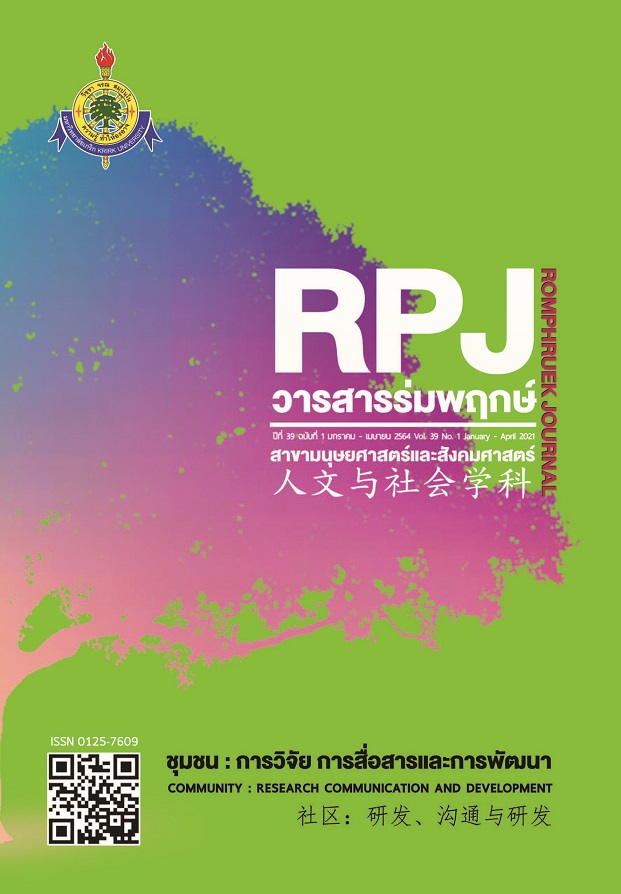Educational System and Social Problem Solving
Main Article Content
Abstract
One of the main reasons for the "Social Problem" today comes from the "people." In order to concretely reduce the social problems, the development of people as a crucial component of society, where "education" is a major factor in terms of the development of people needed to be taken into account.
Although Thailand has been reforming and developing the education system since the reign of King Rama V, but the development of people in the nation has not been adequately progressed. As a result, the social problems have been going on. Of course, each person is different in understanding, beliefs, and attitudes, which are cultivated differently. Therefore, the organization of the education system must be clear, serious, and continuous. In order to be able to develop people effectively, this will certainly have a positive effect and reduce the social problems of the nation.
This article presents solutions to social problems. Based on various contexts Involved in education both directly and indirectly under the author's point of view.
Article Details
Every article published in the Romphruek Journal of the Humanities and Social Sciences is the opinion and point of view of the authors. Thery're not the viewpoint of Krirk University or the editored department. Any part or all of the articles for pablication must be clearly cited.
References
กรุงเทพธุรกิจ. (2562). อนาคตครัวเรือนไทยเปราะบาง. (29 สิงหาคม 2563) สืบค้นจาก https://www.bangkokbiznews.com/news/detail/839400.
คณะกรรมการส่งเสริมและประสานงานสตรีแห่งชาติ. (2537). เอกสารประกอบการประชุมสมัชชาแห่งชาติด้านครอบครัว “ร่างนโยบายและแผนงานในการพัฒนาสถาบันครอบครัว”. (29 สิงหาคม 2563) สืบค้นจาก http://www.socialwarning.m-society.go.th/risk/5.html.
คำสั่งหัวหน้าคณะรักษาความสงบแห่งชาติ ที่ 28/2559. (2559). เรื่อง ให้จัดการศึกษาขั้นพื้นฐาน 15 ปี โดยไม่เก็บค่าใช้จ่าย. ราชกิจจานุเบกษา, 133(ตอนพิเศษ 136 ง), 11-12.
ประกาศกระทรวงศึกษาธิการ. (2557). เรื่อง การเพิ่มวิชาหน้าที่พลเมืองเป็นรายวิชาเพิ่มเติมในหลักสูตรแกนกลางการศึกษาขั้นพื้นฐาน พุทธศักราช 2551. (29 สิงหาคม 2563) สืบค้นจาก http://www.dla.go.th/upload/document/type2/2015/1/14590_1_1420448001923.pdf?time=1420454447969.
ประไพ เอกอุ่น. (2542). การศึกษาไทย. กรุงเทพฯ : ศูนย์การพิมพ์สถาบันราชภัฏสวนสุนันทา.
พระราชบัญญัติ การศึกษาภาคบังคับ พ.ศ.2545. (2545). ราชกิจจานุเบกษา, 119(ตอนที่ 128 ก), 11-14.
วิลาสินี วัฒนมงคล. (2561). วิกฤตการศึกษาไทยในยุค 4.0 . วารสารศึกษาศาสตร์ มมร, 6(1), 427-444.
สำนักงานสถิติแห่งชาติ กระทรวงดิจิทัลเพื่อเศรษฐกิจและสังคม. (2561). รายงานตัวชี้วัด itu (international telecommunication union) 2561. กรุงเทพฯ : กองสถิติพยากรณ์.
สำนักงานเลขาธิการสภาการศึกษา กระทรวงศึกษาธิการ. (2561). สถิติการศึกษาของประเทศไทย ปีการศึกษา 2559-2560. กรุงเทพฯ : บริษัท พริกหวานกราฟฟิค จำกัด.
TIME U.S. (2013). Millennials : the me me me generation. (September 4, 2020) Retrieved from https://time.com/247/millennials-the-me-me-me-generation/.


